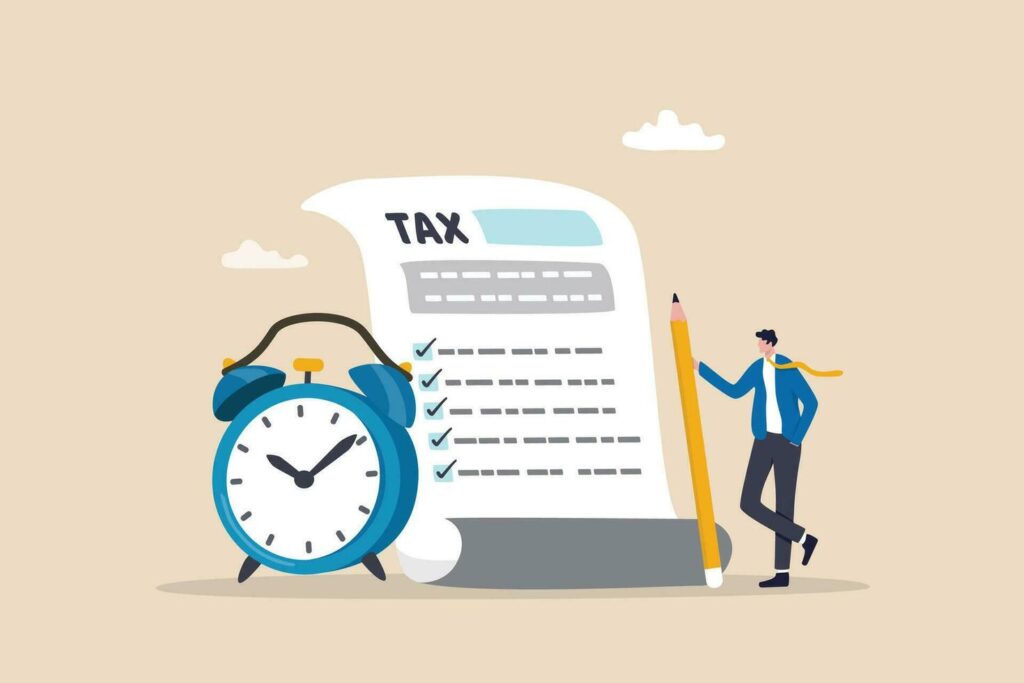Tax planning is a crucial aspect of financial management that cannot be overlooked. It involves the strategic management of your finances and investments to minimize tax liability while maximizing your wealth. In this article, we will explore the art and science behind effective tax planning, and how you can leverage it to optimize your financial situation.
Understanding the Basics of Tax Planning
Before delving into the intricacies of tax planning comapny, it is important to grasp its underlying importance. Tax planning is not just about finding ways to reduce taxes; it is about structuring your financial affairs in a way that aligns with your overall financial goals. By taking a proactive approach to tax planning, you can ensure that your wealth accumulation is not hindered by excessive tax burdens.
Here are some key concepts that form the foundation of tax planning:
The Importance of Tax Planning
Tax planning allows you to legally minimize your tax liability, which in turn enables you to retain more of your hard-earned money. By optimizing your tax strategy, you can redirect the funds that would have otherwise been paid in taxes towards your investments and wealth-building initiatives.
One of the primary benefits of tax planning is the ability to take advantage of tax deductions. These deductions are specific expenses that you can subtract from your taxable income, reducing the overall amount of tax you owe. Common deductions include mortgage interest, medical expenses, and charitable contributions. By strategically planning your expenses and maximizing your deductions, you can significantly lower your tax burden.

Another important aspect of tax planning is understanding tax credits. Unlike deductions, which reduce your taxable income, tax credits directly reduce the amount of tax you owe. This means that if you are eligible for a tax credit, it will have a dollar-for-dollar impact on your tax liability. Examples of tax credits include the child tax credit, education credits, and energy efficiency credits. By identifying and utilizing applicable tax credits, you can further reduce your tax liability and potentially receive a refund.
Furthermore, tax-advantaged accounts play a crucial role in tax planning. These accounts, such as individual retirement accounts (IRAs) and 401(k) plans, offer tax advantages that can help you grow your wealth more efficiently. Contributions to these accounts are often tax-deductible, and the earnings within the accounts grow tax-free until withdrawal. By strategically utilizing tax-advantaged accounts, you can optimize your tax savings and enhance your long-term financial security.
See Also: The Power of Debt Recycling for Building Financial Resilience
Key Concepts in Tax Planning
Several key concepts are essential to understand when it comes to tax planning. These include the progressive tax system, tax deductions, tax credits, and tax-advantaged accounts. Understanding these concepts will help you navigate the complexities of the tax landscape more effectively and make informed decisions that align with your financial goals.
The progressive tax system is a fundamental aspect of tax planning. In this system, tax rates increase as income levels rise. This means that individuals with higher incomes are subject to higher tax rates. Understanding how the progressive tax system works can help you identify opportunities to optimize your tax strategy and minimize your overall tax liability.
Additionally, being aware of various tax deductions is crucial for effective tax planning. Deductions can include expenses related to education, healthcare, homeownership, and business expenses. By keeping track of eligible deductions and maximizing their utilization, you can reduce your taxable income and ultimately lower your tax bill.
Tax credits are another important concept to consider. These credits directly reduce the amount of tax you owe and can provide substantial savings. Examples of tax credits include the earned income tax credit, child tax credit, and adoption tax credit. Understanding the eligibility criteria and requirements for these credits can help you take full advantage of the tax benefits they offer.
Lastly, tax-advantaged accounts are valuable tools in tax planning. These accounts, such as Health Savings Accounts (HSAs), Flexible Spending Accounts (FSAs), and 529 college savings plans, offer unique tax advantages that can help you save for specific financial goals. By utilizing these accounts effectively, you can maximize your tax savings and optimize your overall financial strategy.
The Art of Tax Planning
The art of tax planning lies in its strategic approach to minimizing tax liability. It involves identifying opportunities and employing creative strategies to legally reduce the amount of tax you owe. By incorporating various techniques and leveraging the existing tax laws, you can optimize your tax situation and retain more of your wealth.
When it comes to tax planning, there are numerous factors to consider. One important aspect is maximizing deductions and credits. By carefully analyzing your expenses and income, you can identify deductible items and take advantage of tax credits that you may be eligible for. This can include deductions for business expenses, education expenses, or even charitable contributions. By strategically utilizing these deductions and credits, you can significantly reduce your overall tax liability.
Another strategic approach to minimize tax liability is employing tax-efficient investment strategies. This involves carefully considering the tax implications of different investment options and making informed decisions. For example, investing in tax-exempt municipal bonds can provide tax-free income, while utilizing tax-advantaged retirement accounts like IRAs or 401(k)s can offer tax-deferred growth. By strategically allocating your investments, you can minimize the tax impact and maximize your after-tax returns.

Utilizing tax-advantaged accounts is another effective way to minimize tax liability. These accounts, such as Health Savings Accounts (HSAs) or Flexible Spending Accounts (FSAs), offer tax advantages for specific purposes. HSAs, for instance, allow you to contribute pre-tax dollars for medical expenses, while FSAs allow you to set aside pre-tax funds for qualified healthcare expenses. By taking advantage of these accounts, you can reduce your taxable income and potentially save on taxes.
Furthermore, tax planning opportunities exist throughout the year, not just during tax season. By staying proactive and continuously monitoring your financial situation, you can identify opportunities to optimize your tax position. This can involve timing certain transactions to take advantage of favorable tax rates, maximizing contributions to retirement accounts before year-end, or even adjusting your withholding allowances to ensure you’re not overpaying in taxes.
The Role of Creativity in Tax Planning
Creativity plays a vital role in tax planning. By thinking outside the box and exploring innovative solutions, you can uncover unique opportunities to optimize your tax situation. This can involve exploring tax credits specific to your industry or profession, structuring your business in a tax-efficient manner, or utilizing advanced tax planning strategies.
For example, if you’re a small business owner, you can creatively structure your business to take advantage of tax benefits. This may involve choosing the right entity type, such as a Limited Liability Company (LLC) or an S Corporation, which can offer tax advantages like pass-through taxation or self-employment tax savings. Additionally, you can explore tax credits available for businesses in certain industries, such as research and development credits or energy-efficient incentives.
Advanced tax planning strategies can also be employed to optimize your tax situation. These strategies often involve complex techniques like income shifting, asset location optimization, or charitable remainder trusts. By working with a knowledgeable tax advisor, you can explore these advanced strategies and determine if they are suitable for your specific circumstances.
In conclusion, tax planning is not just about filling out forms and submitting them on time. It requires a strategic and creative approach to minimize tax liability. By maximizing deductions and credits, employing tax-efficient investment strategies, utilizing tax-advantaged accounts, and exploring creative opportunities, you can optimize your tax situation and retain more of your hard-earned wealth.
The Science of Tax Planning
The science of tax planning involves the use of financial analysis and the understanding of economic trends to inform tax planning decisions. By utilizing data-driven approaches and staying abreast of economic developments, you can make informed decisions that optimize your tax situation.
Tax planning is a complex field that requires a deep understanding of financial analysis. By analyzing your financial statements, income, expenses, and investments, you can identify areas where you can optimize and reduce your tax liability. This analysis involves a meticulous examination of your financial data, looking for opportunities to minimize taxes legally and ethically.
One key aspect of financial analysis in tax planning is the identification of deductions and credits that you may be eligible for. By carefully reviewing your expenses and income, you can identify deductible expenses, such as business expenses, medical expenses, or education-related expenses. Additionally, you can explore tax credits, such as the Earned Income Tax Credit or the Child Tax Credit, which can significantly reduce your tax liability.
Utilizing Financial Analysis in Tax Planning
Financial analysis plays a crucial role in tax planning. By analyzing your financial statements, income, expenses, and investments, you can identify areas where you can optimize and reduce your tax liability. This can involve restructuring investments, reallocating assets, or implementing tax planning strategies specific to your financial situation.
Another important aspect of financial analysis in tax planning is the evaluation of your investment portfolio. By assessing the tax implications of different investment options, you can make informed decisions that align with your tax planning goals. For example, you may consider investing in tax-efficient funds or tax-exempt bonds to minimize the impact of taxes on your investment returns.
Furthermore, financial analysis can help you identify potential tax planning opportunities related to your business. By analyzing your business’s financial performance and structure, you can determine if there are any tax-saving strategies you can implement. This may include restructuring your business entity, taking advantage of tax incentives for specific industries, or optimizing your business expenses to maximize deductions.
The Impact of Economic Trends on Tax Planning
Economic trends have a direct impact on tax planning strategies. By staying informed about changes in tax laws, regulations, and economic conditions, you can adapt your tax planning strategy accordingly. This may involve taking advantage of new tax incentives, adjusting investment strategies to align with market trends, or exploring tax planning opportunities specific to economic developments.
For example, during periods of economic growth, tax planning strategies may focus on maximizing investment returns and capitalizing on favorable tax rates. On the other hand, during economic downturns, tax planning strategies may prioritize preserving wealth, minimizing losses, and taking advantage of tax relief measures implemented by the government.
Furthermore, economic trends can influence the timing of certain tax planning decisions. For instance, if you anticipate changes in tax rates or regulations, you may choose to accelerate or defer income or expenses to optimize your tax liability. By closely monitoring economic indicators and staying informed about potential changes, you can make strategic tax planning decisions that align with the prevailing economic conditions.
In conclusion, tax planning is a dynamic and multifaceted field that requires a deep understanding of financial analysis and economic trends. By utilizing data-driven approaches and staying informed about changes in tax laws and economic conditions, you can optimize your tax situation and minimize your tax liability.

Advanced Tax Planning Strategies
For high-income individuals and businesses, advanced tax planning strategies can provide further optimization of their tax situation. These strategies go beyond the basics and require a comprehensive understanding of tax laws, regulations, and available options.
Tax Planning for High-Income Individuals
High-income individuals often face unique tax challenges. By employing advanced tax planning strategies such as income shifting, asset placement, and charitable giving, high-net-worth individuals can reduce their tax liability and maximize their wealth accumulation.
Tax Planning for Businesses
Businesses can also benefit from advanced tax planning strategies. By structuring their operations in a tax-efficient manner, leveraging business deductions and credits, and exploring specialized tax planning opportunities, businesses can optimize their tax situation and allocate more resources towards growth and expansion initiatives.
The Future of Tax Planning
The field of tax planning is not static. It continuously evolves alongside technological advancements and changes in legislation. Staying ahead of these developments can give you a competitive edge in optimizing your tax situation.
Technological Innovations in Tax Planning
With the advent of advanced technologies like artificial intelligence and machine learning, tax planning is becoming more sophisticated. These technologies can automate processes, improve efficiency, and provide valuable insights that can inform tax planning decisions. By embracing these innovations, you can streamline your tax planning process and enhance its effectiveness.
Legislative Changes and Their Impact on Tax Planning
Legislation relating to taxes is subject to change. It is crucial to stay informed about new laws, regulations, and proposed changes, as they can have a significant impact on your tax planning strategy. By staying proactive and adjusting your approach accordingly, you can navigate the ever-changing tax landscape and optimize your tax situation.
In conclusion, tax planning is a dynamic process that combines the art and science of financial management. By understanding the basics, adopting strategic approaches, leveraging financial analysis, and embracing technological advancements, you can maximize your wealth and achieve your financial goals while minimizing your tax liability. Stay informed, be proactive, and work with a qualified tax professional to ensure you are optimizing your tax situation effectively.

